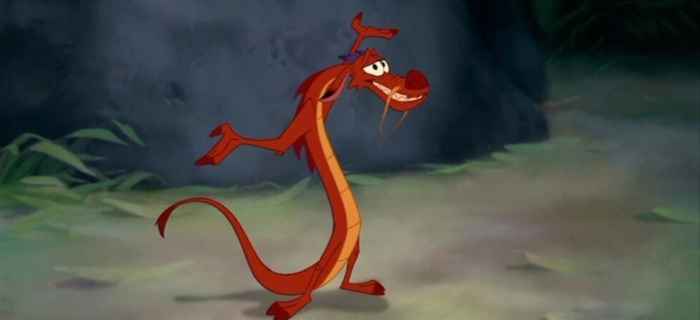Feminism and the Disney Princesses the Artifice
Mulan's Relatability, Self-Discovery, and Selfishness
Despite its release twenty years ago, Mulan remains a favorite of the Disney classics. The film features a strong main female character who is relatable and unique from the other Disney princesses in more ways than one.
The film's main character is based off of a popular Chinese legend in which a woman by the name Hua Mulan dresses as a man and takes her father's place in the army (Klimczak).
Because the legend originates from China, Disney's adaptation of Mulan easily sticks out from other Disney princess films. Her culture is fresh and captivating to an American audience who is immune to, and perhaps tired of, western-based stories. A film featuring a Chinese woman will stand out from the rest of the white Disney princesses.
But is Mulan "better" than other Disney films that lack this diversity?
Sticking to the same western cultures may make stories feel repetitive and dry, but exploring different cultures can allow for more unique one. Diversity can also draw in a different audience: people like seeing characters they can relate to and so a culture-specific film would bring in people from that culture.
Mulan Defining Herself and Self-Improvement
Mulan's diversity is not the only reason the film sticks. Mulan as a character is a realistic portrayal of a young woman who doesn't abide to traditional gender roles. One might view Mulan as a feminist icon because of how she defies gender stereotypes. She doesn't actively rebel against the ideas of marriage or womanhood — she's just a different kind of woman than what her culture expects.
Mulan defies gender stereotypes by accepting both a feminine and masculine identity. At the beginning of the film, she rejects ideas of femininity. She's loud, socially awkward, and persistent. As her family prepares to find her a husband, Mulan is anything but a gentle, proper bride. She also struggles with a masculine identity as seen when she fails tests to prepare for war.

By the end of the film, she succeeds as a warrior (a masculine trait) which then allows her to accept her femininity. She declines a position in the royal palace and instead returns home as a daughter, not a warrior.
Mulan as a character is a rarity and the start of a new trend in the Disney princesses. Often times, Disney princesses reflect gender expectations and ideals. Snow White, for example, is passive and praised for her beauty and never steps out of these boundaries. And while princesses such as Cinderella are independent and go out into the world for their own betterment, the prince still seeks her out for her beauty and gentleness.
Mulan goes to war and becomes a solider: a very masculine thing to do compared to previous princesses. This experience forces her to step out of her comfort zone, thus adding to her character development. Mulan sticks out from the rest of the soldiers. She doesn't know how to interact with men, especially in a scenario when there are just men behaving as they would without any women around.
This war setting leaves no expectations for how Mulan should act as a woman: she has the freedom to act as she pleases so long as she receives approval from the other soldiers. She uses her intelligence to overcome obstacles, such as taking advantage of the weights to help her climb the pole rather than drag her down.

These types of challenges test her problem-solving skills. She cannot show-off her strengths as a woman because society expects women to be passive. But here, gendered expectations cannot hold her back, thus allowing her to overcome obstacles, gain approval, and improve self-worth.
No other classic Disney princess has found herself in a war and playing the part of a soldier. Mulan is the perfect princess for this role. She has the determination to prove herself and is no longer limited to behave as a woman should. She still identifies as a woman and sees herself as different from the rest of the troops, but none of them shame her for not behaving as they think a woman should.
Mulan's Universal Relatability
Relatable characters can teach and inspire audience members. Moreover, people who see themselves in their favorite characters feel a sense of belonging (Haberstroh). One reason many people enjoy the film is because of how many people can relate to Mulan. She is not just relatable to a niche of people: just about anyone can see themselves in her.
The first obvious type of people who relate to her are women. This story covers specifically Chinese women and how they are supposed to act, dress, and bring honor to their family by marrying a respectable man. Mulan represents real-world girls who do not necessarily want to behave a certain way or marry a certain man — or marry at all.
As she settles into camp with the other troops, Mulan finds herself not fitting into how men should behave and treat each other. She has an idea, but she fails at executing appropriate behavior, such as how she accidentally starts a fight in attempt to appear manly.
Mulan, then, represents boys who do not fit into masculine culture. Of course, she's a girl raised to behave as a girl. She has only observed masculine behavior to help guide her alongside poor advice from her dragon companion, Mushu. But technicalities aside, she does portray the difficulties a boy might face if he does not adhere to masculine culture as is expected of him.

If one wants to take this analysis a step further, then viewers might also interpret Mulan as an allegory for struggles transgender men experience. Mulan grew up believing she was a girl but found herself failing to uphold gender traditions. She then switches from being Fa Zhou's daughter to his son, Ping. And lastly, she struggles to fit into masculine culture as she faces rejection of her newfound gender as well as discomfort in her discovery to identity.
The end of the song "I'll Make a Man Out of You" represents struggles transgender men may face. Mulan has failed to prove she's soldier-material, so Shang kicks her out of the camp. Instead of leaving, she's determined to prove she can be a solider — or be a man, in other words. She climbs the pole and retrieves the arrow, a feat none of the other troops managed, and proves to Shang she is valuable.
Mulan, like transgender men, is incapable of proving she's biologically a man. The only way she can prove herself is through her actions. Transgender men may find themselves in a similar position in which they have to prove their manhood through their attire, behavior, and actions that other men would approve of.
The Importance of Selfishness
Audiences cherish Mulan because of her selflessness: she leaves for war so her father doesn't have to, she risks her life to save Shang during the avalanche, and she puts herself in danger to save the emperor from Shan Yu.
At first glance, Mulan seems totally and a hundred-percent selfless because she does all of this for the sake of other people's lives, not her own.
But Mulan's long-term goal is selfish. Her motivation to go to war to save her father is selfless, but her motivation is just as selfish because what she really wants is to find herself. Everything she does is to bring her one step closer to finding her identity. The song "Reflection" shows how from the beginning, Mulan wants to find out who she is. Saving her father is only a stepping stone for her self-discovery.
After the troops discover Mulan's true gender and leave her, she looks at her reflection in her helmet. She says, "Maybe I didn't go for my father. Maybe what I really wanted was to prove I could do things right. So when I look in the mirror, I'd see someone worthwhile." This line in the film encompasses Mulan's true motivation. Although saving her father's life is a benefit, what Mulan really wants out of this experience is to go to war for her own betterment. In her case, selfishness is an entirely good thing. Viewers see her struggle to understand who she is and want to see her figure that out by the end of the film.

In no way is her selfishness a negative — in fact, it's one of her best personality traits. A character like Mulan sticks out because she is a healthy mix of both selfishness and selflessness. Her selflessness allows her to connect to other people, while her selfishness allows her to grow and ultimately is what teaches her self-worth.
Conclusion: Going Back to Her Roots
Although there are variations to the legend, the most widely known version of the story has Mulan voluntarily reveal her true gender to the rest of the soldiers during battle. The soldiers don't react negatively and instead respect her more for her honesty (Klimczak). But in the Disney film, the soldiers are at first appalled and confused to find out she's a woman. It isn't until later when Mulan saves the emperor does she get the respect she had been fighting for. The reaction to Mulan's true gender is the biggest difference between the source material and Disney's adaptation. If the soldiers reacted more positively to her gender reveal, then perhaps the film could have taught viewers that gender identity doesn't have to hold an individual back from achieving their goals. Or, views can interpret the Disney version as showing how people will still question women's abilities and strengths regardless of what they have achieved and are capable of.
References
Haberstroh, Kelly. The Importance of Relatable Characters in Entertainment. The Odyssey, 26 April 2016, https://www.theodysseyonline.com/the-importance-of-relatable-characters-in-entertainment.
Klimczak, Natalia. The Ballad of Hua Mulan: The Legendary Warrior Woman Who Brought Hope to China. Ancient Origins, 1 Jan. 2016, https://www.ancient-origins.net/history-famous-people/ballad-hua-mulan-legendary-warrior-woman-who-brought-hope-china-005084.
Mulan. Directed by Tony Bancroft and Barry Cook, performances by Lea Salonga, Donny Osmond, Soon-Tek Oh, and Eddie Murphy, Walt Disney Pictures, 1998.
What do you think? Leave a comment.
Receive our weekly newsletter:
Feminism and the Disney Princesses the Artifice
Source: https://the-artifice.com/mulans-analysis/
Post a Comment for "Feminism and the Disney Princesses the Artifice"